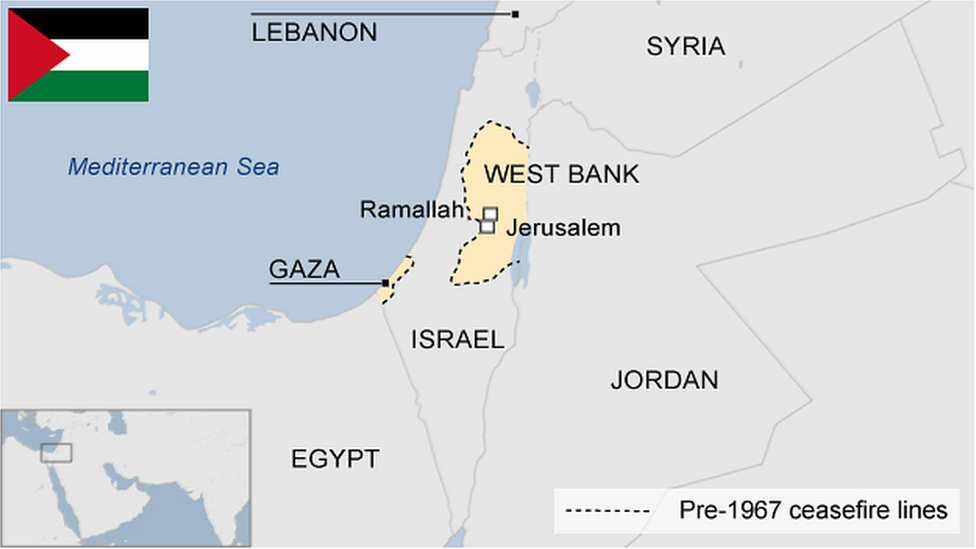Trump's Middle East peace plan: 'Deal of the century' is huge gamble
- Published
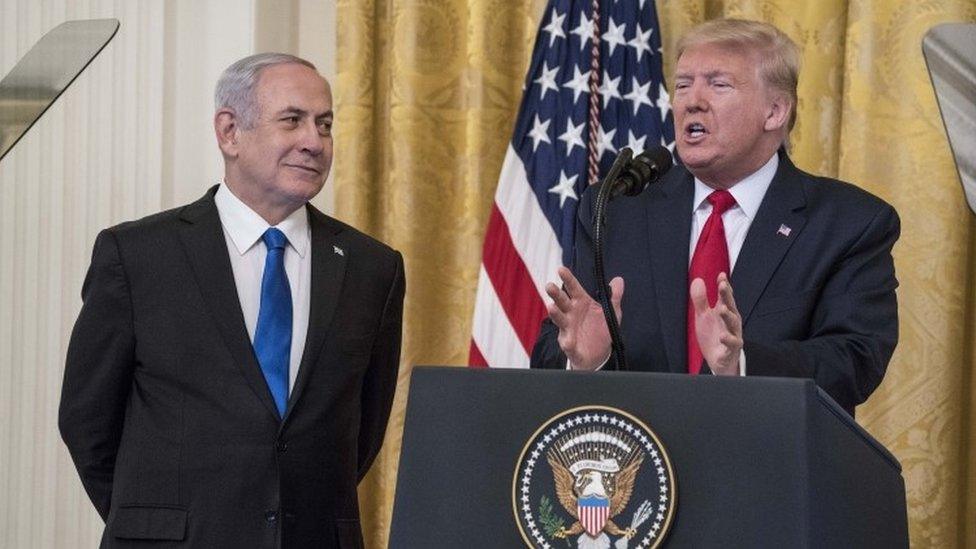
Mr Trump's plan is a great deal for Mr Netanyahu and his government
At times the atmosphere in the East Room at the White House was more a party than a news conference.
The host, US President Donald Trump, and the guest of honour, Israel's Prime Minister Benjamin Netanyahu, backslappingly beamed at each other. The guests drawn from the entourages of the two leaders clapped and whooped.
The biggest cheers were for President Trump's reminders of what he has done for Israel. Prime Minister Netanyahu said the day would be remembered in the same breath as Israel's day of independence in 1948. It was, said Mr Netanyahu, one of the most important moments of his life.
President Trump says he has found a new way to make peace between Israel and the Palestinians. Israel will get the security it needs. Palestinians will get the state they crave.
So far so good - except that the Trump plan gives Mr Netanyahu all he wants - and offers Palestinians very little; a sort-of state that will be truncated, without proper sovereignty, surrounded by Israel's territory and threaded between Jewish settlements.
Peace seemed possible, once
President Trump may believe, truly and without doubt, that he is offering the "deal of the century". It is a great deal for Mr Netanyahu and his government. Their positions on the Palestinians, more than ever, are America's positions.
Through all the years of mediation in peace talks between Israel and the Palestinians, the top US priorities have always been Israel's wishes, constraints and most of all its security. But successive US presidents accepted that peace required a viable Palestinian state alongside Israel, even if they were not prepared to allow it equal sovereignty.
Is Palestinian-Israel peace plan out of reach?
Israel argues the Palestinians turned down a series of good offers. The Palestinian negotiators say they made huge concessions, not least accepting Israel's existence in around 78% of their historic homeland.
A negotiated peace did seem possible once, almost 30 years ago. A series of secret talks in Norway became the Oslo peace process, forever symbolised by a ceremony on the White House lawn in 1993 presided over by a beaming President Bill Clinton.
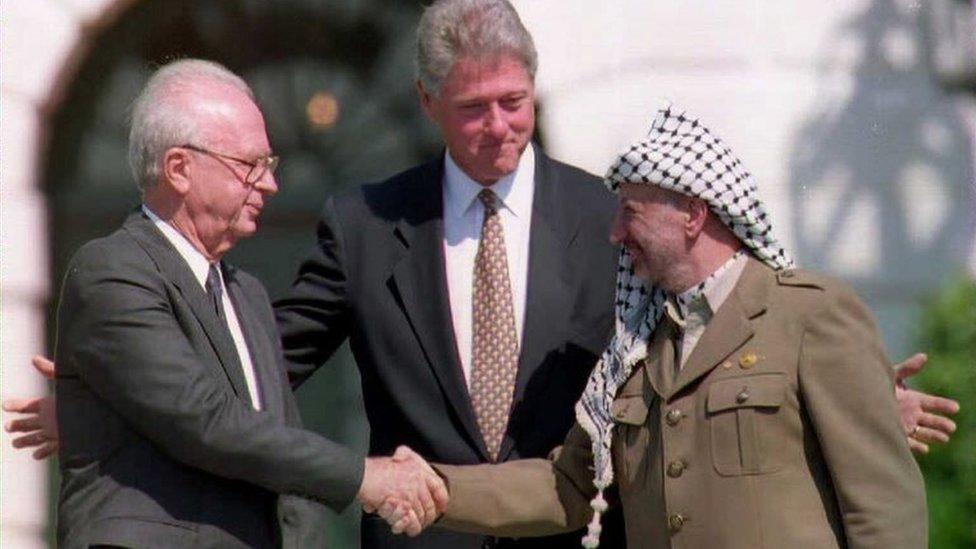
Handshakes on the White House lawn marked a moment of high hopes
Yitzhak Rabin, Israel's greatest war leader, and Yasser Arafat, the human embodiment of Palestinian hopes for freedom, signed documents promising to negotiate the future, not fight for it. The two bitter enemies even shook hands. Rabin, Arafat, and Israel's Foreign Minister Shimon Peres were awarded the Nobel Peace Prize.
Oslo was a historic moment. The Palestinians recognised the state of Israel. The Israelis accepted that the Palestine Liberation Organisation represented the Palestinian people.
Cracks soon appeared in the Oslo edifice. Benjamin Netanyahu called it a mortal threat to Israel. The Israelis accelerated their project to settle Jews in the occupied Palestinian territories. Some Palestinians, like the academic Edward Said, condemned Oslo as a surrender. The Palestinian militants of Hamas, the Islamic Resistance Movement, sent suicide bombers to kill Jews and wreck the chances of a deal.
The atmosphere in Israel turned ugly. Yitzhak Rabin was demonised by some of his fellow Israelis as no better than a Nazi, and portrayed at demonstrations as an officer of the SS. Months of incitement culminated in his assassination by a Jewish extremist on 4 November 1995.
Surrender document
Rabin's killer wanted to wreck the peace process, and he believed the best way to do that was to eliminate the Israeli best equipped to make it a reality. He was right.
Even if Rabin had lived, Oslo might still have failed, defeated by small details as well as huge issues like the future of Jerusalem, by leaders on both sides who preferred conflict to compromise and by the violent reality of a continued Israeli occupation and Palestinian opposition to it.
Why the ancient city of Jerusalem is so important
The timing of the announcement of the Trump initiative suits the political and legal needs of Mr Trump and Mr Netanyahu. Both men face elections. As well as that, Mr Trump gets a distraction from his impeachment, and from his trial in the US Senate for high crimes and misdemeanours. Mr Netanyahu faces criminal charges of corruption, bribery and breach of trust.
President Trump wastes no chances to boast about America's strength. He believes that America's military and economic strength allow him to impose his will. He wants to smash old orthodoxies, like the ones that lay behind many failed attempts to make peace.
The Trump document also sweeps aside inconvenient facts, like UN resolution 242 that emphasises the inadmissibility of the acquisition of territory by war, or international laws that say that occupiers cannot settle their people on occupied land.
Palestinian President Mahmoud Abbas rejected the document almost immediately. Palestinian rights and hopes, he said, were not for sale.
Essentially the Palestinians have been told to take it or leave it. They are being given a surrender document, told to accept that Israel has won, and with its American friends will shape the future. If Palestinians refuse, the message continues, Israel will still get what it wants and they will be even worse off.
There is a chance Palestinians will be afflicted by more anger, despair and hopelessness. In a combustible part of the world, that is dangerous. The Trump plan is a gamble.
- Published18 November 2019
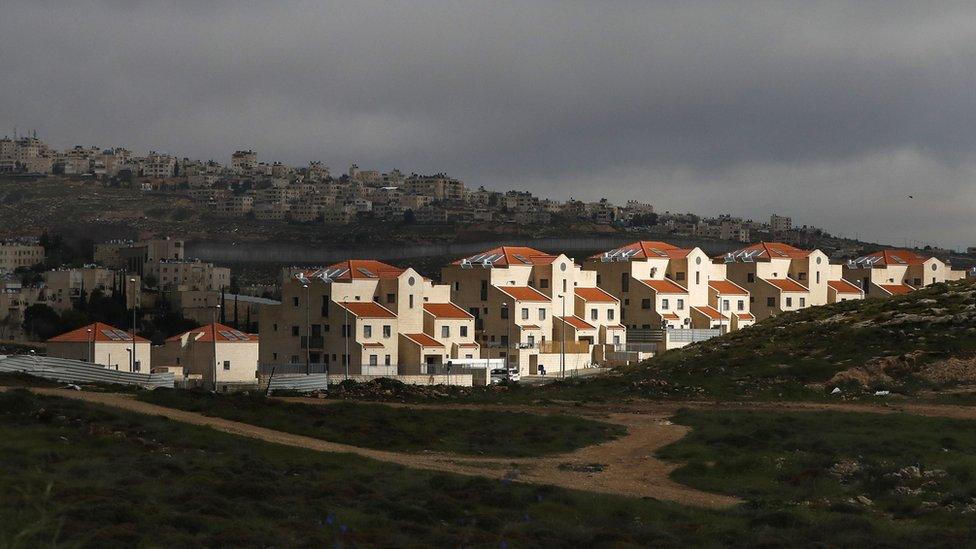
- Published18 November 2019
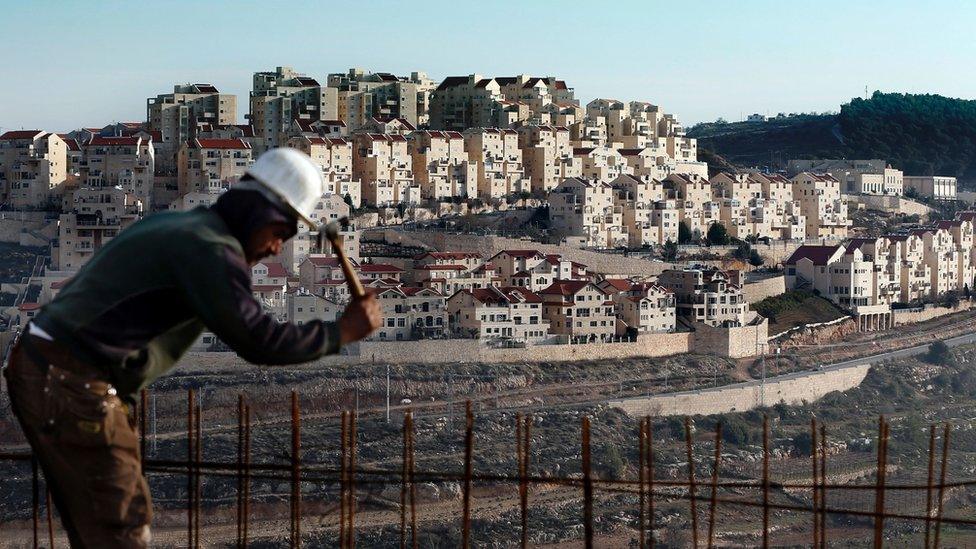
- Published7 December 2017
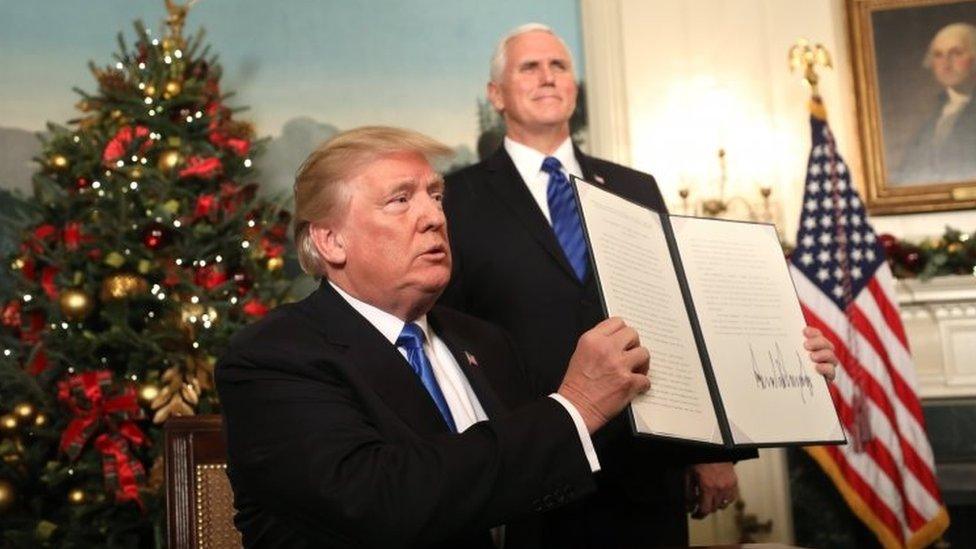
- Published8 October 2018
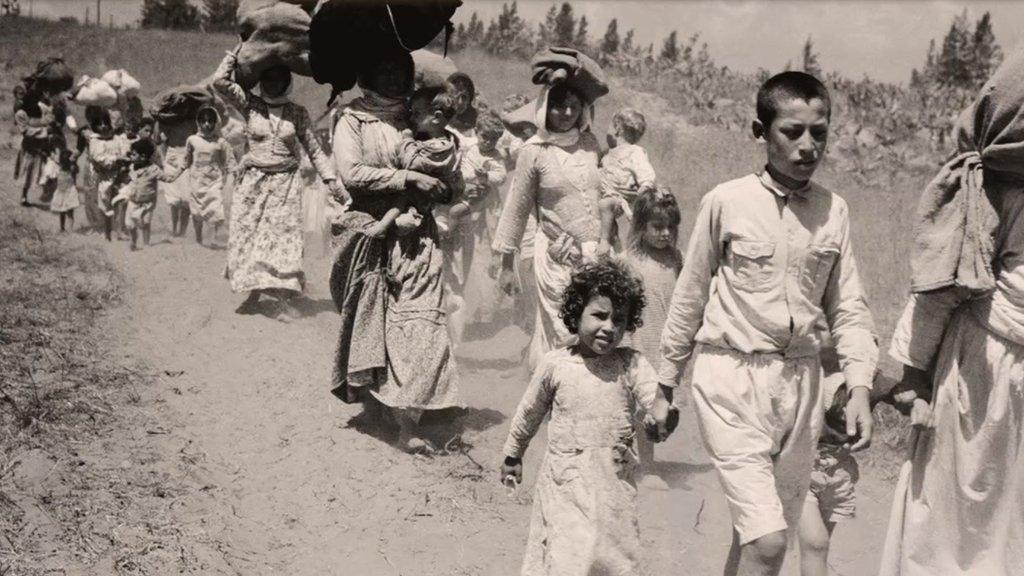
- Published24 June 2019
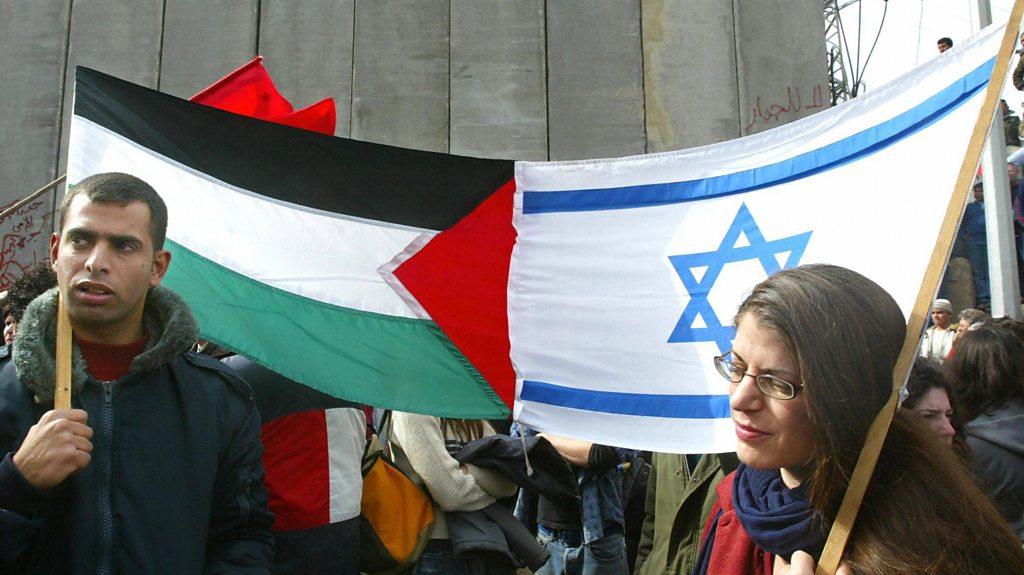
- Published14 May 2018
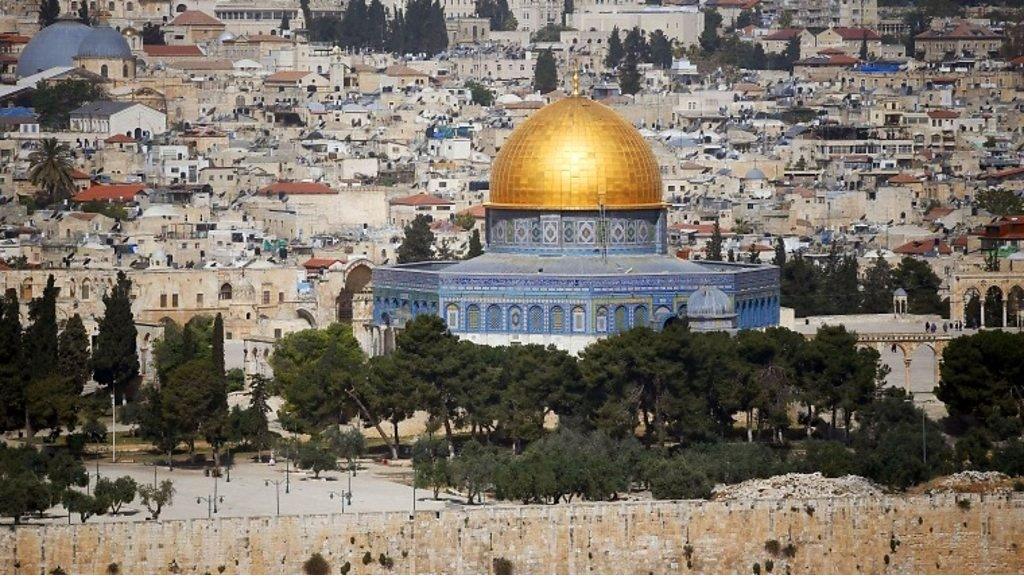
- Published17 February 2017
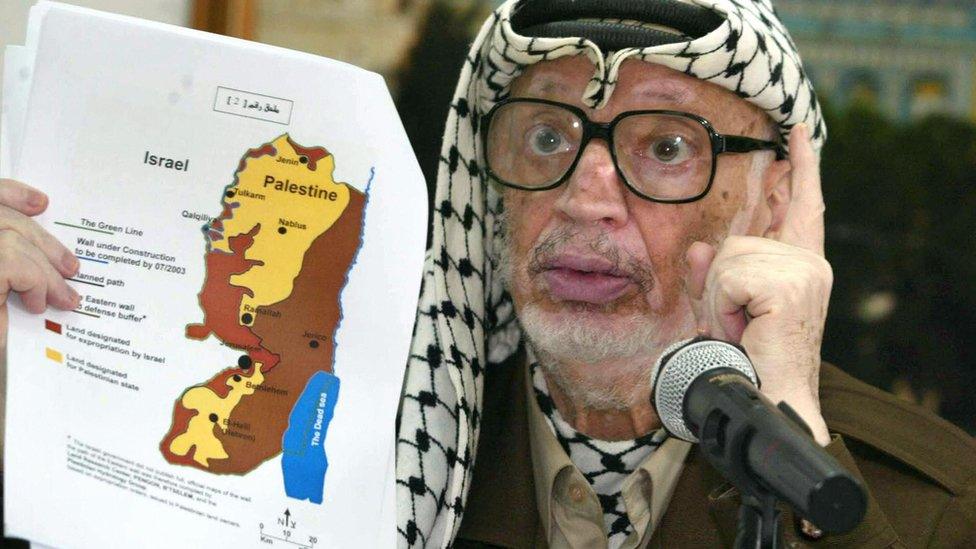
- Published30 October 2014
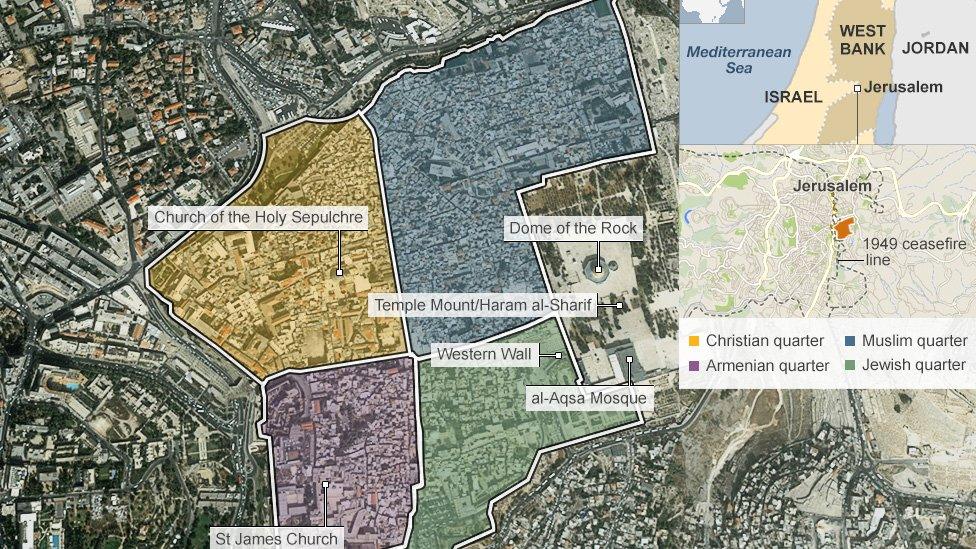
- Published13 October 2023
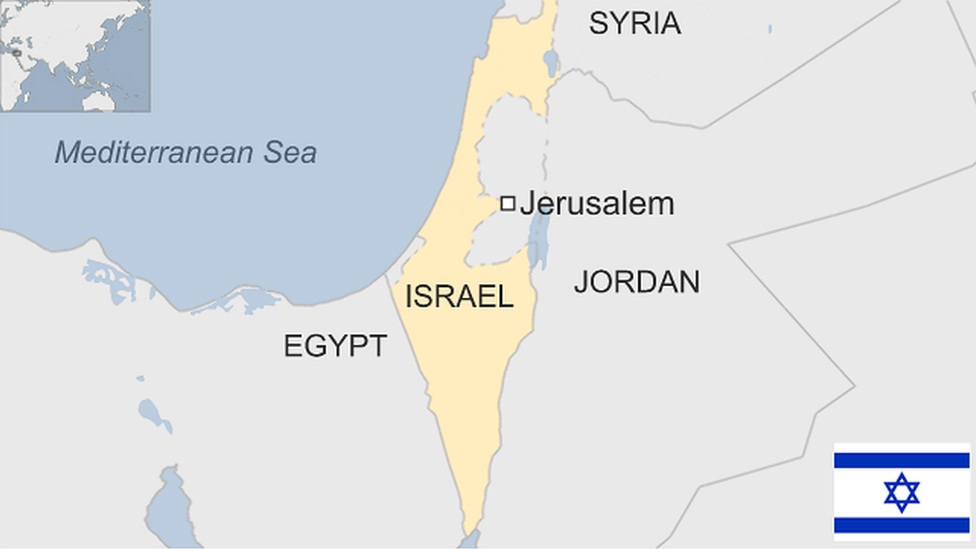
- Published26 June 2023
